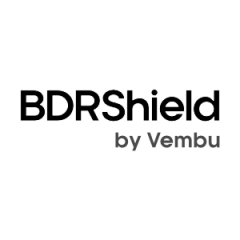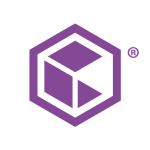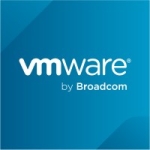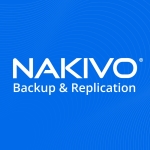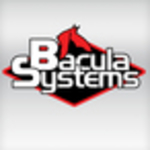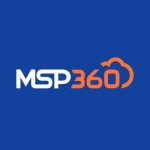I use BDRSuite for my customers. I do backups for them. One of the reasons we chose BDRSuite is because it's a hybrid solution. We perform backups using a local server at the customer site, and we also have an off-site server. This way, we have a backup copy stored outside the customer's site. In case the customer site burns down or faces any disaster, we can still restore the data. That's one of the primary reasons we chose Vembu BDRSuite.
Additionally, it's quite economically viable, and not that expensive. It provides the flexibility to use our own cloud instead of relying solely on the Vembu Cloud. Vembu Cloud is, of course, an option, so we don't have to store anything ourselves. But I prefer having my backup center where I store copies of my customer's backups. So, those are the two main reasons - it's economical and it offers the right backup solution.
It's a valuable asset for me as a business asset. I have a monthly income by selling it as a service to my customers. I'm very pleased with it.
It's important that you can do the full monthly backup for whatever you throw in it. It's fantastic that it actually works on every kind of system. I have the flexibility to offer this service to all my customers, no matter what they may have running, I can still offer them a backup. You can even do back over on Macintosh machines. That's quite valuable because, otherwise, I would sometimes have to say that I can't do it for a customer, but maybe somebody else could. I wouldn't want to give a customer to somebody else. So it's very nice that I can actually handle it all with one product.
Vembu has absolutely helped save money compared to the other solutions. It's a much cheaper solution than using other ones which are quite expensive compared to a Nimble.
I'm a small company, and it would be difficult to regularly change my customers' backup systems. It would be quite difficult. That alone would be quite expensive for me. The last time I checked, it would be a lot of license fees to use Veeam Backup for the same thing. I could do the same things that we use with BDRSuite but it would be horribly expensive if I want the same level of security.
The most valuable feature is the hybrid solution, where you have a local backup at the customer site, and you have Vembu BDRSuite storing a copy of the backup.
This division or approach has proven to be fantastic because it's always difficult if you have to restore a backup completely from scratch. It's very cumbersome to set up a copy of the backup on a hard drive or similar media and transport it to the site to establish something new.
Moreover, if you only have a local backup, it's vulnerable to complete destruction in case of a catastrophic event. So, this hybrid solution combines the best of both worlds.
Vembu provides us with a way to instantly recover data. It offers instant data recovery through a local backup server deployed at the customer's site. We can quickly recover data either by copying it back to the main server or if the backup server is powerful enough, we can also directly start a virtual machine from the backup.
However, I haven't had the opportunity to do the latter as none of my customers have required such immediate recovery. Thus, I have been using inexpensive hardware for backups at the customer's site to keep expenses low.
It is very important to us that Vembu provides multiple restore points for data recovery. Having multiple restore points is crucial because you may discover that some malicious employee tampered with or encrypted your data a month ago. In such cases, it's vital to be able to roll back the data to a point before the incident occurred.
Often, these incidents come to light after some time has passed, making the availability of earlier restore points like a time machine to protect against data loss.
Another important factor to us is that Vembu provides incremental backup processing. Without incremental backup, the process would be extremely time-consuming. One of my customers, who is an engineering company involved in construction projects, has around sixteen terabytes of data. Since they work on these cases for extended periods, even the older cases get revisited for updates or renewals. With so much active data, performing a full backup every time would be impractical.
Vembu's incremental backup is incredibly valuable and efficient. Compared to other backup systems I've used in the past, it is notably faster and more reliable.
Scheduling backups is quite important to us as well, and Vembu BDRSuite offers sophisticated options. I haven't come across any missing features.
Adding and removing backup jobs with Vembu BDRSuite is quite straightforward, but the time taken depends on whether you are doing backups of physical machines, physical workstations, or virtual machines and hypervisor installations.
In my case, I only do backups of virtual machines and hypervisor installations, and in those scenarios, it's very easy. You just point out the hypervisor, and it will do the backup of the virtual machines on it. You can select which virtual machines you want to back up, so it's quite easy. It becomes a bit more difficult when you want to choose physical backups because you need to assign Vembu BDRSuite to the physical machine, which requires some housekeeping work. Nonetheless, it's still relatively easy. It's not a big deal or rocket science, as far as I can tell. If you are even slightly familiar with backup systems.
The level of difficulty to add and remove backup jobs using BDRSuite depends on whether you do a backup on a physical machine, a physical workstation, or whatever you use to back up. In my case, I only do backups on virtual machines and hypervisor installations, it's very easy. You just point out the hypervisor and it does the backup of the virtual machines on it. You can select which virtual machines you want to do a backup on, so it's quite easy. It's very difficult to schedule backups and to have backups done. It's a bit more difficult if you want to choose a physical backup because that puts strain on the physical machine and you have to do some housekeeping work. But it's still quite easy, it's not a big deal if you are a little bit equipped with the backup systems.
The only thing I would like to see covered in future updates is the possibility to store yearly or quarterly backups. Currently, you can only set a straight timeline, like 35 days backward or 37 days. It means that if you create a backup each day, you can only have a consecutive set of backups. I would prefer a new user feature to create yearly backups, for instance, and store them in the image with the current backup data.
The API uses a common data image to store the data for the sets, but unfortunately, it's limited to consecutive sets only. That's the only limitation I have observed so far.
I've been using BDRSuite for about ten years.
The only crashes I experienced were because I was a bit frugal on the hardware. I haven't had a lot of problems. In case there are problems, the support is fantastic. They have been absolutely great. I don't have anything bad to say about it in any way. It works.
I have small customers and one large customer with tons of data. It works well with tons of data to do a backup of the virtual machines. I think it will probably run into problems if the individual drives that it needs to back up are too big. At the moment, I only do backups on a virtual drive that is about ten terabytes in size, and it's hard to restore everything that would be necessary. It takes a long time to restore a ten-terabyte drive. But it's probably not due to them, it's probably an issue of organizing things better on the server side. I wouldn't recommend having ten terabyte drives.
I have contacted support several times. They are absolutely fantastic. It's very easy to get support. They reach out and solve the problems for you. It's very easy to get support as long as you can have them working on the issue directly. Sometimes there are issues with giving access to customer service
We chose it because it has the ability to do a hybrid backup. It means that you can have a server at the customer site to make quick restores and still have the security of having a backup copy of whatever you backed up at the customer site. You're going to have that stored at another place. In case of a complete burndown or whatever at the customer's site, you would still have the data. That was the main reason for choosing Vembu.
It's very easy to integrate Vembu with existing infrastructure. You can put a server by itself, so it doesn't interfere with the existing installation in any way. I haven't had any problems with that so far.
I am able to do the integrations myself.
It does not require much maintenance. You have to check the hardware and then see that everything goes well. I've set up some reporting, so I receive messages in case anything goes wrong or in case the backup fails. But it's very stable, it works well.
It's very cheap and it's absolutely competitive.
It is a good choice for a business with a tight budget. You can have a free version of Veeam, and you can get other backup programs for free as well. This is quite cheap. And, of course, there are some things in BDRSuite that are free as well. If you just want to make a hard copy of this server, that's free as well. I'd definitely recommend it as an economic solution.
It's quite cheap. I think I pay about two or three hundred dollars a year in license fees just to keep my backup running. It's very cheap compared to what I can charge my customers for the service. It's a very good deal. It's very cheap.
I would rate BDRSuite a nine out of ten. There are a few things they could do better, but it runs well. I'm very happy with it.
My advice would be to make a test case. Find out how much you will have to pay for it. You will need some proper hardware depending on which features you want to use so that you won't have performance issues.
It goes well once you know what you want. The difficult part is figuring out what you want and what you need for any backup solution. Once you know that, it's very easy to implement it. Most installations today are based on hypervisors. And in that area, Vembu is very strong competition. You might find something similar but you'll have to pay for it.

